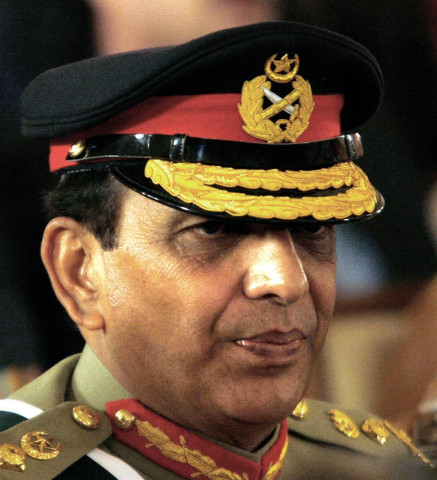The people and their armed forces
It is time to return the ownership of foreign policy and security matters to the people and their representatives.

These reports also follow what many considered to be an unprecedented public statement by the military, following the most recent corps commanders’ conference. However, as has already been said on these pages, the response left a lot to be desired.
For instance, the only admission of mistake — which seemed to have been forced by parliament following a tense in-camera briefing — has come when the director-general of the ISI offered to resign. However, when it came to questions on how US helicopters could fly from our western border all the way to a city an hour’s drive from Islamabad, the explanations given by the air force were less than satisfactory.
This was followed by the PNS Mehran attack in which a major naval and air force installation was under attack for almost a day. Instead of admitting that there has been a serious security lapse, the navy chief, albeit in response to a question, suggested that there had been no such lapse. This he said after the terrorists who attacked the base managed to destroy two aircraft worth over $70 million (roughly Rs6 billion). Then, a journalist who had written on the attack and had suggested that it may have been linked to al Qaeda sympathisers in the navy — who had been arrested for these ties and were not being released — was found dead soon after.
Even now, the right questions are not being asked, even by many Pakistanis, especially those sitting in parliament. For instance, apart from the issue of how the Americans penetrated so far inside Pakistan, the equally, if not more, pressing question is: How was Osama bin Laden living in Abbottabad for so many years without anyone noticing the presence of the world’s most wanted terrorist? Many people are questioning the fact that the performance of an organisation that receives over a quarter of the federal budget, and far in excess of what education and health combined receive, has not been satisfactory. But this should not only be seen in light of its relations with America and whether it can stand up to Washington, but also in relation to its past — and some say ongoing — support of militant and extremist outfits. Sending proxy warriors to fight the ‘jihad’ in Kashmir is no longer an option but questions need to be asked — why did the military even engage in such a policy in the first place? Who created the Taliban and who enabled their success in setting up a government in Afghanistan? Who allows the Haqqanis and their allies sanctuaries inside Pakistan, especially given that the cost of having extremists — foreign or homegrown — on our soil has now become known to all of us, since the militants have now chosen to point their guns inward? Who decided that there are some Taliban who are ‘good’ and some who are ‘bad’, given that they all have close links with each other? Did the people of this country, or their elected representatives, have any say in all of this? And please, for once, we would like an honest answer.
In this context, General Kayani reportedly telling his soldiers that dependence on US dole has brought Pakistan to such a pass and that Pakistan does not like interference by the US but also that it cannot go to war with Washington needs to be welcomed as realistic. Let us also remember that US presence in Pakistan is in fact a response to the presence of militants and extremists in the region. The officers’ corps should realise it is now time to return the ownership of foreign policy as well as security matters to the people of Pakistan through their elected representatives.
Published in The Express Tribune, June 18th, 2011.














COMMENTS
Comments are moderated and generally will be posted if they are on-topic and not abusive.
For more information, please see our Comments FAQ